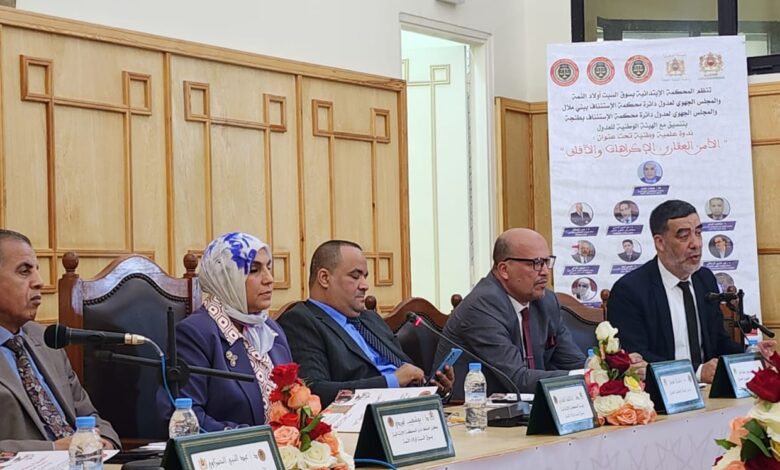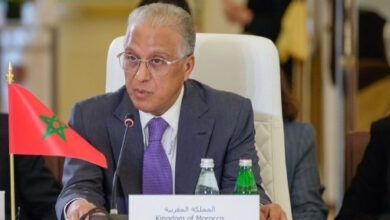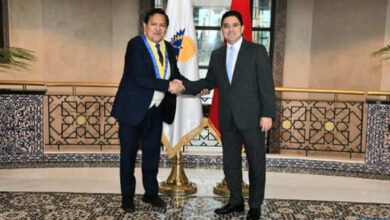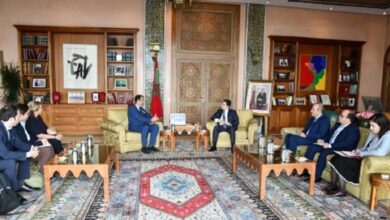Land security brings together judges, notaries, and lawyers to address real estate expropriation cases.

National Conference on Land Security: Challenges and Perspectives
A national conference was held under the theme "Land Security: Challenges and Perspectives," featuring the participation of judges, adouls (Islamic notaries), lawyers, judicial officials, local authority representatives, and experts in documentation and land law. The event took place at the Court of First Instance in Souk Sebt Oulad Nemma, which falls under the judicial district of Béni Mellal-Khénifra, on the morning of April 30, 2025.
This scientific and professional meeting illuminated the myriad issues related to land security in Morocco, especially against the backdrop of rapid urban transformation, notably in rural areas experiencing increased urbanization. This phenomenon has led to uncontrolled subdivisions, further complicating legal documentation and transactions.
In her opening speech, Ms. Aïcha El Aazem, President of the Court of First Instance in Souk Sebt, emphasized the importance of this initiative that brings together various stakeholders in the judicial system. She stressed that the relationship between people and land goes beyond material concerns, serving as a cornerstone for social and economic stability, which necessitates rigorous organization and an evolving legislative framework.
On his part, Master Driss Trali, President of the Regional Council of Adouls near the Court of Appeal of Béni Mellal, asserted that ensuring land security requires effective urban planning and a clear land policy. He highlighted that land is an essential component of successful public policies, particularly regarding investment and land development.
Master Saïd Saroukh, President of the Regional Council of Adouls near the Court of Appeal of Tangier, praised the professional cooperation between adouls and the judicial institution. He noted that justice is no longer merely an entity for dispute resolution but also serves as an administrative and societal actor through what is now termed community justice, calling for a strengthening of this role in service of land security.
In a similar vein, Master Bouchaïb Louardi, Public Prosecutor at the Court of First Instance in Souk Sebt, suggested that "the multiplicity of legal regimes and the increase in acts of dispossession necessitate a more rigorous approach to transactions." He affirmed that "the current land system requires legislative restructuring to restore trust and reduce disputes," advocating for enhanced coordination among various stakeholders, a cohesive national vision rooted in role complementarity, and the development of ongoing training for adouls and notaries to keep pace with legal and technical advancements.
The conference featured various presentations from lawyers, land experts, and administrative officials, who highlighted the obstacles to documenting property titles, the multiplicity of legal references, and the challenges citizens face in land registration procedures, thereby creating a complex legal environment detrimental to trust and investment.
The conference concluded with several recommendations put forth by the speakers, including:
- Unifying the documentation system between adouls and notaries to ensure legal consistency and simplify contractual procedures.
- Clarifying the content of circulars from the General Registrar to avoid divergent interpretations that could harm land security.
- Revising Article 4 of the Real Rights Code, which poses practical problems affecting the documentation of legal acts.
- Amending the financial law provisions related to compensation for expropriation for public utility, considering legal equity.
- Requiring only the certificate of payment for taxes related to the property involved in the transaction, without extending this requirement to other properties owned by the seller.
- Modifying Article 109 of the Dahir on land conservation to include the possibility of extraordinary appeals in addition to standard appeals and cassation.
- Strengthening the legal framework for the work of experts, particularly concerning land valuation in judicial expertise.
- Refusing to draft legal texts under the pressure of crises to ensure legislative stability and quality laws.
- Reformulating certain legal concepts in land texts, distinguishing between substantive and procedural matters.
- Unifying legal texts into a comprehensive and simplified land code.
- Defining modes of proof for ownership of collective lands and ensuring their legal protection.
- Establishing legal mechanisms to protect consumers in real estate contracts.
- Simplifying land conservation procedures, especially for lands within consolidation perimeters, and broadening the public prosecutor’s prerogatives to protect possession.
- Amending Article 570 of the Penal Code to criminalize any act that infringes upon possession or obstructs enjoyment of real property without justification, allowing courts to restore the previous situation ex officio.
These recommendations were well received by participants, who stressed the necessity of enhancing coordination among various actors in the land sector, developing ongoing professional training, and consolidating the role of justice as a guarantor of land security and social balance.
In closing, attendees praised the efforts of the organizing committee and the commitment of the speakers in enriching the discussion, calling for the continuity of such scientific meetings to address the growing challenges in the land sector in Morocco.





